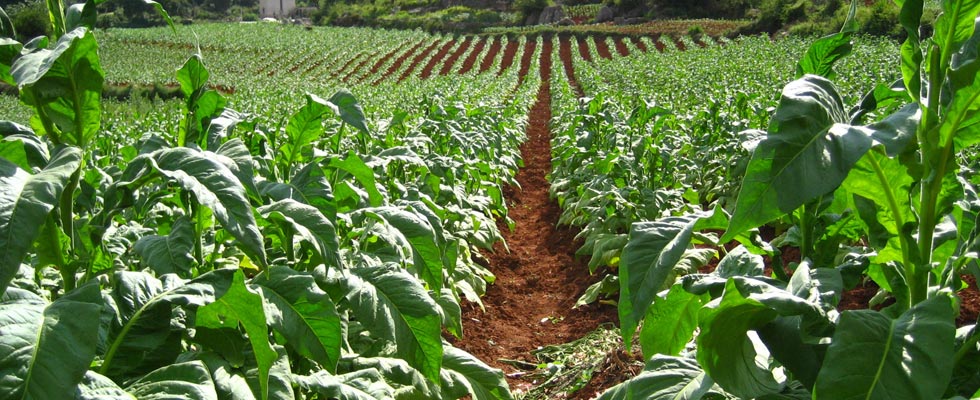
THE depths of the political and economic crises in Zimbabwe require no elaboration. The country, once a bright African star, is a mess.
REPORT BY WISDOM MDZUNGAIRI
And, that all will be well in Zimbabwe once the historical legacy of racially-based land allocation, congruent with the dual system of tenure is overcome, has been a mainstay of political rhetoric since Independence in 1980.
Perhaps that is the primary reason why a meaningful land distribution has been endlessly deferred.
The actual reallocation of commercially held farm land has threatened to expose deep contradictions in post-colonial society –contradictions that link class privilege with corruption, access to power connections and political patronage excluded large numbers of Zimbabweans from holding a stake in the country’s future as fully enfranchised citizens.
Although government claims that 276 620 families were resettled during the fast-track land reform programme, only 18 967 were allocated A2 commercial farms.

Frustrated by the government’s unfulfilled promise to finance agriculture and being resettled on what they perceive to be their own land, it is hardly surprising that people are choosing to settle matters on their own.
As the political denouement plays out over the next several years, the pressing challenges of economic reconstruction will be identified, and a general development strategy — imported from other “post-crisis” countries — will again be unveiled.
- Chamisa under fire over US$120K donation
- Mavhunga puts DeMbare into Chibuku quarterfinals
- Pension funds bet on Cabora Bassa oilfields
- Councils defy govt fire tender directive
Keep Reading
With the farmers preparing for the new agricultural season, the usual remedies will be on offer —free seeds, fertiliser, agricultural extension services, irrigation infrastructure, marketing/input cooperatives, microfinance schemes and infrastructure loans.
What does this have to do with Zimbabwe’s vexed land question?
Everything and nothing! That would be one way of putting it. Certainly Zimbabwe’s present-day woes cannot be separated from its land question.
In an interview, resettled farmers in Mashonaland East, West and Central provinces said poor agriculture policies could force them out of farming if no corrective measures were taken soon.
A resettled small-scale farmer Shayne Lifa of Debela Farm, Makonde, said when he was allocated 24 hectares at the farm, he was optimistic that he would reap “handsome” rewards from his venture, but he was hugely frustrated at the unfulfilled promises by government.

Lifa, who has been farming in Mashonaland West for the past 13 years, said he had recorded huge losses in the last farming season.
“I have a wife and five children, plus two nephews that I take care of. Labour is not a problem. When I was allocated this piece of land, we thought government would assist us. Yes, I needed land, because I do not have draught power I can only manage one hectare which needs about 14 bags of fertilizer. Can you imagine we have enough water, but it is useless? We do not have resources to farm,” Lifa said.

“Each time government donates some crop inputs to our farm, it only benefits our political leaders. So how am I going to pull out of my present predicament? It appears only those with political muscle, connections will benefit from fertilisers, seeds and even free tillage services by government. Remember, everything is done through political party structures.”
The fuming Lifa added: “I grew some tobacco in anticipation of better returns, but all my hope was transformed into nightmares each time. I used more than $3 000 in expenses for my almost two hectares, but when I went to the auction floors last season, my crop fetched poor prices, a feat that has reduced me to a pauper as I now have to work on the farms for others to raise money to settle my labour costs and other debts.
“The buyers are crooks. They don’t want to pay good prices to us because we, as black people, are now in control of the farms. In the past, whites made a lot of money through farming, but now blacks own those farms and we have failed to make money. We also want to drive new cars like what they (whites) did.”
Lifa, whose predicament is shared by thousands of resettled farmers, said he had remained poor despite his efforts. In fact, it is even worse than most farmers feared. The farmers are inconsolable.
Precious Nyoni, also a resettled farmer at Excessior Farm in Mashonaland East, mute with shock and fighting back tears, said some small-scale farmers had committed suicide after failing to repay their debts.
Listen below:
He said that unable to pay back the equivalent of two years’ earnings, a cotton farmer Windross Mushapaidze of Salanaika Farm in Mashonaland Central was in despair. He could see no way out and committed suicide.
Mushapaidze, like millions of other smallholder Zimbabwean farmers, had been promised previously unheard of harvests by the prospect of new farms and income if he switched from farming maize to cotton or tobacco.
Beguiled by the promise of future riches, he borrowed money in order to grow cotton. But, when the harvests failed, he was left with spiralling debts — and no income.
So, Mushapaidze became one of the thousands of farmers affected by insurmountable debts.
Having taken loans from traditional money lenders at extortionate rates, hundreds of thousands of smallholder farmers have faced losing their all, including land, as the expensive crop inputs fail to match produce final price, while those who could struggle on faced a fresh crisis.
“My parents are alien. The land reform came at the right time, but now I do not feel empowered at all. I participated in the violent take-over of some farms, it’s true, I wanted to look after myself on a piece of land I would call mine,” Lifa said.
“Tobacco needs a tractor so that you can have a better harvest. Now I survive through fishing. At this farm, we’ve several huge dams, so we exchange fish with maize for our staple. We even sell donated fertilizer or seed. Life on the farms is no child’s play, it is difficult my brother.”
Another resettled farmer, Godwin Muchenje — a retired soldier, chipped in: “We have been given six tractors to provide tillage services for this season, but they will benefit top leadership. The land reform was a noble idea, but it was hijacked by some selfish politicians. Unfortunately, we have nowhere to turn to. Our leaders are also corrupt.”
But Nyoni feels government should subsidise agricultural inputs to ensure the farmers could purchase what they needed.
“Each time government donates agricultural inputs such as fertilizer, seed and others, whatever we get, most of it we sell cheaply. This is because even if we keep them, where will we use them since we hardly have draught power for tillage. Farmers need subsidies. We hear over $650 million was allocated to agriculture. We are saying that money should be used to boost crop and fertilizer inputs production by industry so that they are cheaply sold to farmers,” Nyoni said.
Zimbabwe Farmers’ Union vice-president Berean Mukwende urged government to revamp its agriculture policy to boost production to ensure communal farmers were also not neglected as they used to produce the bulk of the staple maize.
“A1 and communal farmers used to be the backbone of agriculture in this country. But, in the past few years we have neglected them and focused more on resettled farmers yet A2 (commercial) have failed to live up to expectations,” Mukwende said.
“We believe government should not give free inputs to farmers because the distribution process is open to abuse. Instead of politicians distributing crop and fertilizer inputs that should be done by Agriculture Extension Services and farmers’ unions so that we monitor our farmers against abuse of donated inputs.”
Mukwende added that agricultural facilities should be used to boost crop production.
“We do not need these donations, but a huge cash injection in the banking sector so that we are able to borrow to sustain our agricultural activities. There is no doubt that the banking sector will drive the economy and farmers need funding,” he said.
“Almost all farmers are indebted in one way or the other. We can’t borrow against land — our land is currently worthless, you can’t use it as collateral. So government should revamp agricultural policies to allow us to maximise production. Under the current environment agriculture will not improve. The rate of return is extremely suffocating farmers. We are saying government should straighten the macroeconomic environment first.”
A top official with the Lands and Resettlement ministry concurred with frustrated farmers, saying the land redistribution programme had brought mixed fortunes.
The official added: “Zimbabwe provides the perfect lessons of what not to do under a situation of bitter conflict. Our early land redistribution programme in the 1980s was hailed as a success largely because all parties played their role as envisaged. The fast track phase was different because some parties failed or were reluctant to honour their obligations.
“The fast-track land redistribution phase was carried out against a background of inadequate planning. As a result, there was insufficient time to do proper assessments and hence settlement was haphazard. The result was that a lot of plots were demarcated on marginal fragile environments. The programme did not allow for proper land capability and suitability assessments. Lack of proper plans will continue to influence performance of the land redistribution programme.”
There was also need to provide adequate resources for the planning process in order for planning to precede settlement, but once people were settled without proper planning, the official said, it became more difficult to carry out proper planning.
Since January this year, the Ministry of Agriculture, Mechanisation and Irrigation has been holding various consultative meetings across the country to gather views from the agricultural stakeholders on their expectations.
Experts say the development of viable irrigation infrastructure around the country was the best way of reviving the agricultural sector.
But, Lifa believe farmers would remain in the same circle of poverty if government does not come to their rescue as they also have to buy seed and fertilizer each year at punitive prices.
Cruelly, it is the young farmers and their families who are suffering most from the skewed position — the very generation that is supposed to be lifted out of a life of hardship and misery by the land redistribution programme.
Revamp agriculture policies — farmers
THE most repeated myths about Zimbabwe’s land reform is that all the land went to President Robert Mugabe’s cronies — those with access to power, connections benefiting from political patronage.
REPORT BY WISDOM MDZUNGAIRI
This did, of course, may have happened, and continued to some extent, but official figures showed over 12 million hectares were parcelled to thousands of poor people across the country.
However, tackling extreme excesses of land grabbing through a land audit has remained a major challenge, according to top government officials.
Zimbabwe Farmers’ Union vice-president Berean Mukwende challenged the government to revamp the agriculture policy to enhance food production.
Mukwende also urged the government to expedite the crafting of the national irrigation policy, saying the delays in coming up with a national irrigation policy which will promote irrigation technologies continued to be a major setback in government’s efforts to mitigate food shortages emanating from successive droughts.
Vice-President Joice Mujuru last week said it was disturbing to note that there were sad experiences in the agricultural sector where some people were doing business while others were dying of hunger, malnutrition and disease. “We have the land, water, the climate, clean, natural, safe and peaceful environment, arable land, educated and well trained people . . . Why is the yield not going up? Are we mobilising enough financial resources for the (agricultural) sector and utilising them efficiently?” Mujuru queried.
“It is important that the development of this country should consider first things first, that is to say, agricultural growth and development must precede manufacturing and its secondary industries. The historic land reform programme in Zimbabwe transformed the land ownership structure. There are some people participating in agriculture as smallholder A1 and A2 farmers in place of a few large commercial farmers.”
Commercial Farmers’ Union president Charles Taffs, however, said the collapse in commercial farm output was the primary cause of total economic decline in the country.
“Many of our new farmers are still learning the ropes in terms of production as well as Financial Management. Yield levels being achieved for virtually all crops are generally sub-economic. This problem exists with virtually all banks involved in agriculture having significant bad debt portfolios,” Taffs said.
“This problem has been compounded by recent developments where the government has offered inputs procured under guarantee from suppliers in exchange for produce. This has alienated banks more and more resulting in a situation where farmers are unlikely to harness the required future support from banks. Land allocation has involved creating a system of political patronage where ‘security of tenure’, so-called, is solely dependent on loyalty to a particular political party. This basing of security of tenure on political considerations has not allowed for accountability for the use of the ‘free’ land and the resultant ‘free’ or subsidised inputs, equipment and cheap loan finance.”
Taffs said while the land resettlement programme attempted to address the needs of the landless poor, it did little to solve the increasingly pressing issue of overcrowding in communal areas.
“No policy was put in place to standardise land tenure and abolish the dual system that discriminated against communal farmers. The commercial agriculture sub-sector was founded on, and developed because farmers were able to mortgage their fixed properties and raise finance by providing financiers with mortgage bonds. This system of providing security for credit was fundamental to being able to carry out farming operations, and governed investment and output. It was the cornerstone to stimulating the entrepreneurial spirit that developed this sub-sector,” the CFU chief said.
“As a result of the fast-track land reform programme, ownership appears to have been acquired by government and not by persons that were allocated the properties. There are no plans in place for these persons to eventually buy the farms. This has destroyed confidence in property rights in Zimbabwe, thus generally de-incentivising investment by beneficiaries of the allocated land.
“There have been moves to introduce lease agreements to replace the title deed system. The object is to put in place a system of tradable leases that financiers will accept as security for loans. So far Government has not produced a standard lease document acceptable to financiers as security for credit advanced.”
Taffs said the current position was that as a result of wholesale acquisition of farms the land market in the large-scale commercial sub-sector had collapsed and no properties were being traded.
“The collateral value of immoveable property has been locked up and this has jeopardised the ability of private sector financial institutions to back agricultural production and infrastructural development,” he said.









